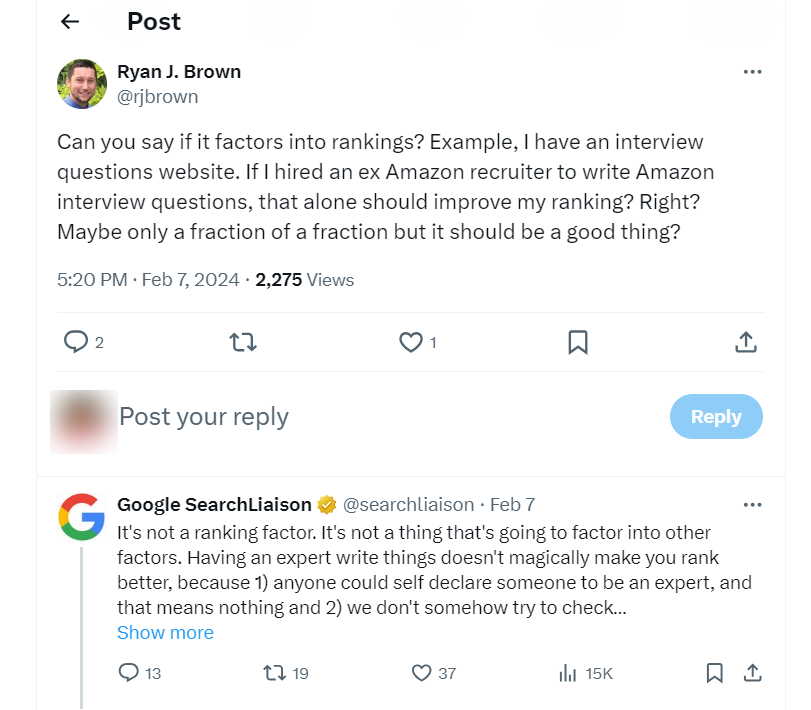
We want to provide you with an overview of a recent update that delves into some crucial insights regarding Google’s E-E-A-T (Experience, Expertise, Authoritativeness, and Trustworthiness) and its implications for our SEO strategy.
It all started with this tweet where Sullivan says that the common elements of E-E-A-T SEOs talk about aren’t actually ranking factors.

Summary of Key Points:
The article clarifies common misconceptions surrounding E-E-A-T and its role in Google’s ranking algorithm. It emphasizes that E-E-A-T is not a direct ranking signal, factor, or system but rather a concept derived from Google’s Search Quality Rater Guidelines.
Why This Matters:
Recent changes in Google’s SEO starter guide and tweets from Google’s Search Liaison, Danny Sullivan, have sparked discussions around E-E-A-T. The article addresses these changes and aims to provide clarity on how they impact our SEO approach.
Debunking Misconceptions:
One of the main points highlighted in the article is the clarification that certain elements assumed to be E-E-A-T signals, such as author bios, expert reviews, and specific contact information, are not actual ranking factors. The article aims to dispel myths that have circulated within the SEO community.
What Google May Actually Use:
While E-E-A-T itself may not be a direct factor, the article suggests that signals rewarding authoritative sites might include a version of PageRank (link authority) and aggregate click data from search logs. This indicates a shift towards macro-level data analysis rather than focusing on individual site clicks.
Understanding the Role of Quality Raters:
The article stresses the role of quality raters who follow the guidelines but do not directly impact ranking algorithms. Instead, they provide valuable data for Google engineers to measure changes in algorithms.
Implications for Our Strategy:
The article concludes that, for ranking purposes alone, traditional E-E-A-T signals might not be essential. However, it emphasizes the importance of user-centric strategies. While certain elements may not directly impact rankings, they contribute to a positive user experience, potentially leading to increased engagement and improved rankings over time.
Recommended Action:
I propose that we review our current SEO strategy in light of these insights. Ensuring our approach aligns with the nuanced understanding of E-E-A-T and its indirect impact on rankings will be beneficial for our overall SEO success.
If you have any questions or would like to discuss this further, please feel free to reach out. Your perspective on these matters is invaluable as we refine our SEO strategy.

Marcus D began his digital marketing career in 2009, specializing in SEO and online visibility. He has helped over 3,000 websites boost traffic and rankings through SEO, web design, content, and PPC strategies. At The Ocean Marketing, he continues to use his expertise to drive measurable growth for businesses.

